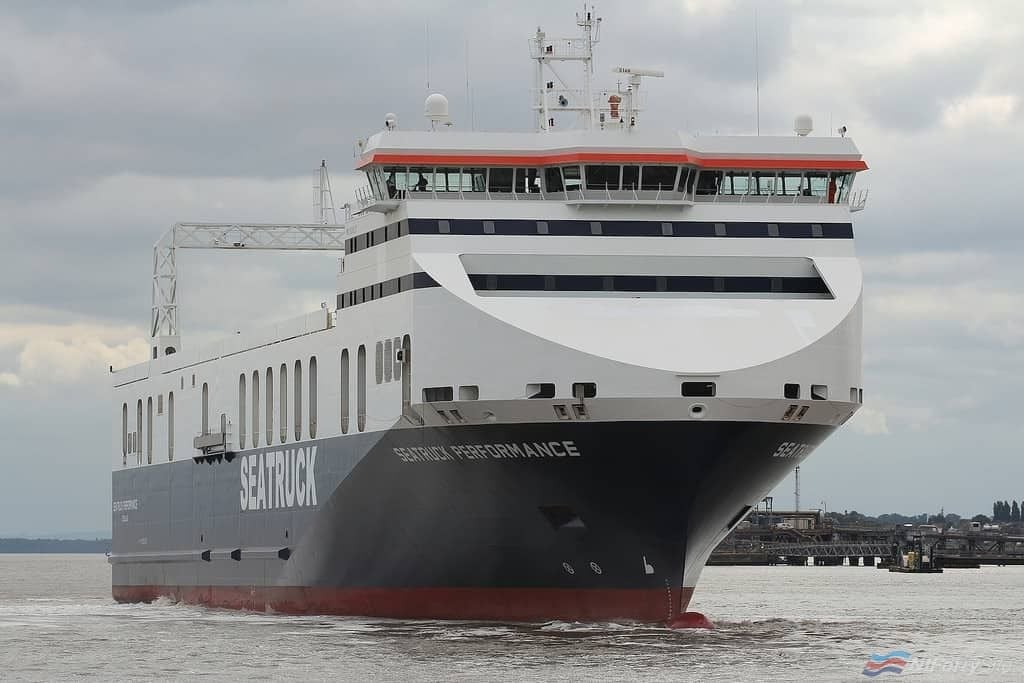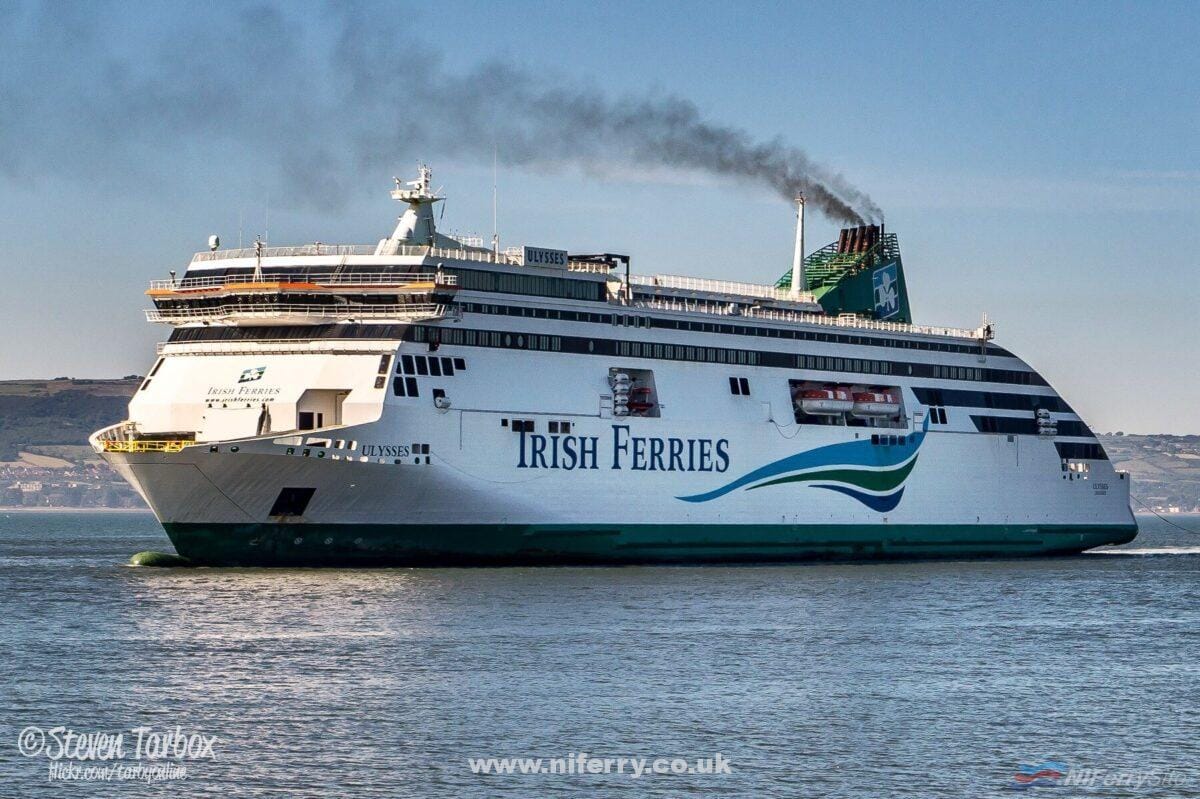Profits down by almost half following a catalogue of problems at Irish Ferries
Irish Ferries owner Irish Continental Group published its half-year update on Thursday, showing that earnings (EBITDA) had fallen by some 11.8% while earnings before interest and tax, including non-trading items, fell 37.8% to €30.1m. Profit before tax fell 46% to €29.7 million in the six months ended June 30th from €47.5 million during the the same period of 2017.
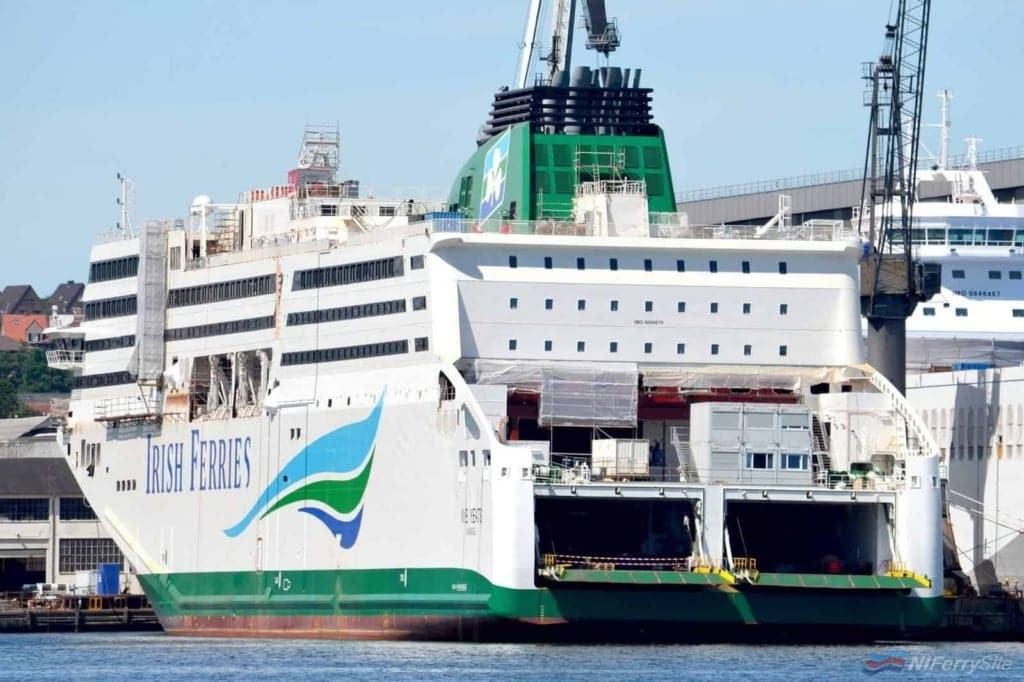
The group had originally expected their new Ireland to France flagship W.B. YEATS to arrive in May, then June. The delay to the delivery of the vessel, which has still yet to be delivered, cost the group some €7m due to the costs of re-accomodating passengers booked on to her services. Of these passengers, 88% were accommodated on alternative Irish Ferries sailings or via landbridge (which would have involved at least one other operator). Up to 19,000 passengers are said to have been affected by the cancellation of W. B. YEATS entire summer timetable. The already poor results have also been skewed by a significant profit from the sale of the catamaran JONATHAN SWIFT to Balearia for €15.5 million (a profit before tax of €13.7 million) and improved results at the groups ports and containers division. Results in the same period of 2017 were also skewed by the sale of the RoPax KAITAKI of course. These sales are one-off events with the company currently not having any other ferries chartered out which could be sold, with the next vessel in the fleet to be replaced EPSILON chartered in from Italian owners. The result of the sales of these ferries has led to a reduction in charter income as well, but netted the company a combined total of €60.5 million in cash. Meanwhile, Irish Ferries still do not have a date for W. B. YEATS to begin service. This is despite previously announcing the vessel would be delivered in September. In todays update to shareholders the group said that the new vessel was now expected “late 2018”. Earlier this week NIFS reported that The Irish Times had been told by “industry sources” that the vessel would now not be delivered until October.
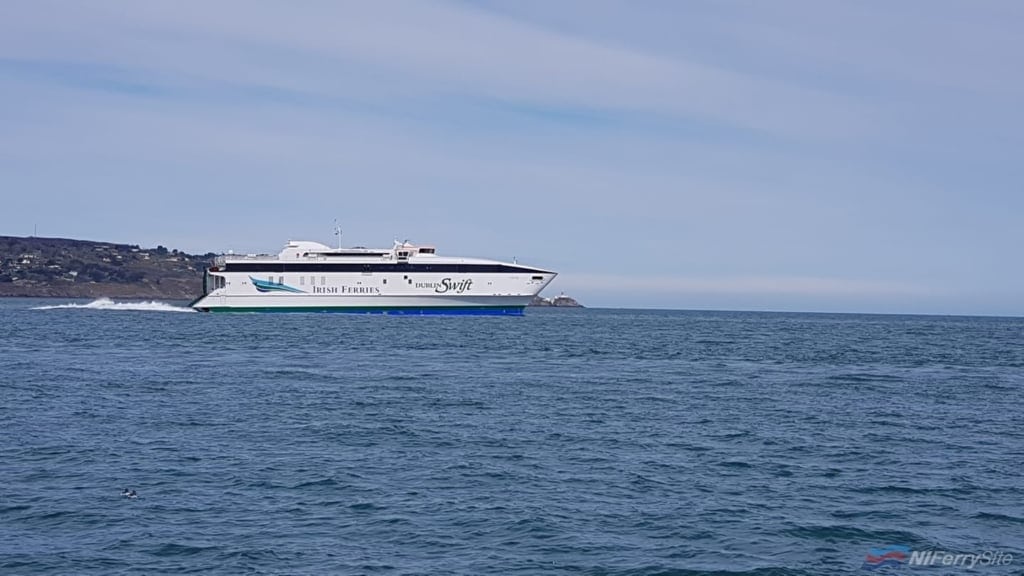
Further Challenges to Come?
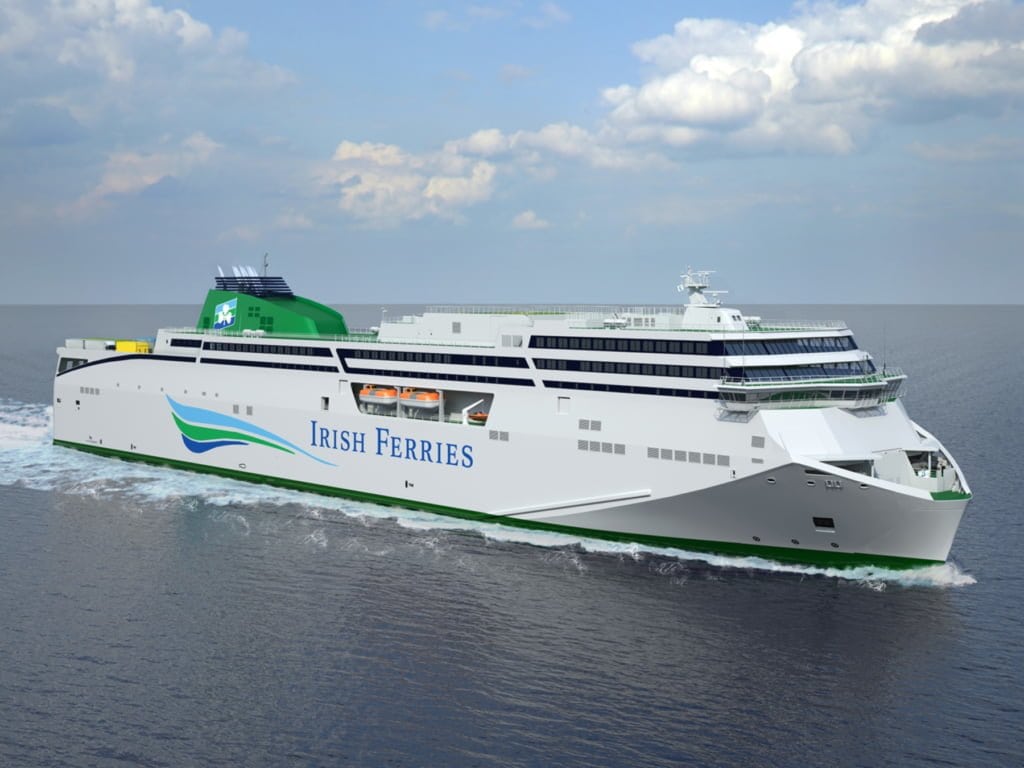
Irish Continental will hope that their fortunes improve significantly, with a second new ferry order from the same shipyard in January to be delivered in 2020. The new vessel will be the groups largest to date, far eclipsing current flagship ULYSSES which still has the largest vehicle capacity on the Irish Sea. She will arrive at a time when competition on the busy Ireland to UK routes is increasing, with competitors Stena Line and Seatruck Ferries both increasing freight capacity as well. The group, like all ferry operators, also have the potential challenges posed by the U.K. leaving the European Union to face, with much of the groups income coming from its two ferry services to the U.K.
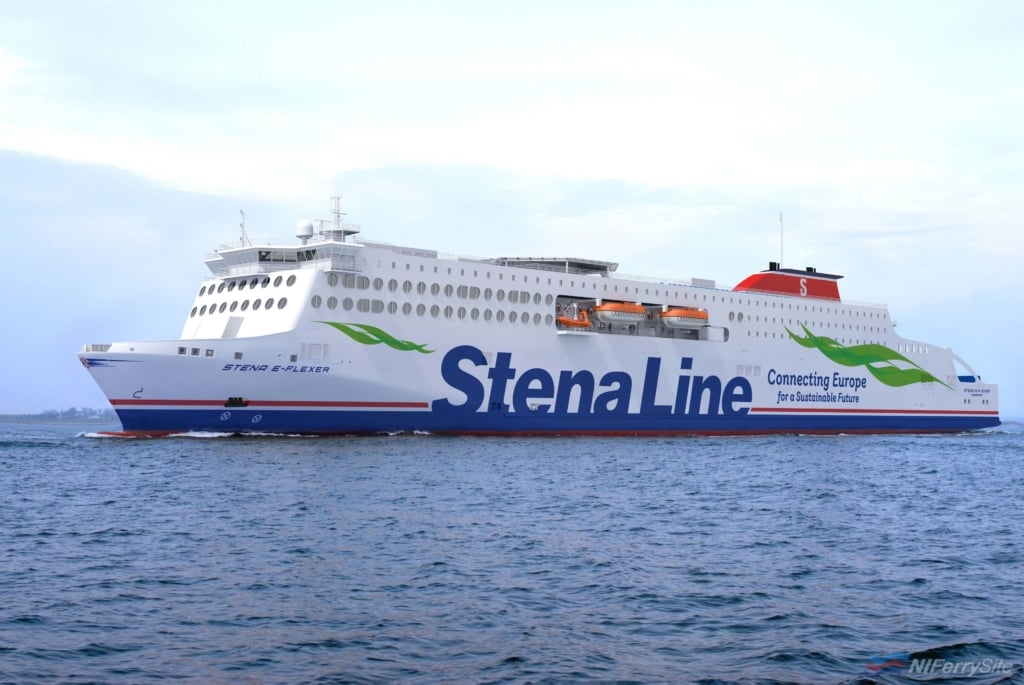
The financial results released today also do not take account of the €7 million costs incurred as a result of the W.B YEATS cancellations, or €6 million in costs incurred by technical difficulties with ULYSSES over the summer. On the positive side there was a slight increase of 3.2% in freight units shipped to 143,100, but car carryings fell by 2.1% to 170,900 and passenger numbers were down 2.9% to 679,700. The company also operated 102 sailings less in the period to 30th of June, which doesn’t include the majority of ULYSSES absence from service. Despite Irish Ferries operating less sailings, group fuel costs increased by €2.8 million (14.3%) to €22.4 million from €19.6 million, putting further pressure on profits. The number of sailings should also decline in the next period given two vessels, OSCAR WILDE and DUBLIN SWIFT are switching to seasonal operation and laying up for the winter. This however should also see costs reduce, while revenue shouldn’t be affected too much with capacity offered on alternative vessels instead. Financial analysts are predicting that the worst is behind ICG and that their long term strategy will pay off, Irish Continental’s shareholders will certainly hope that is the case.
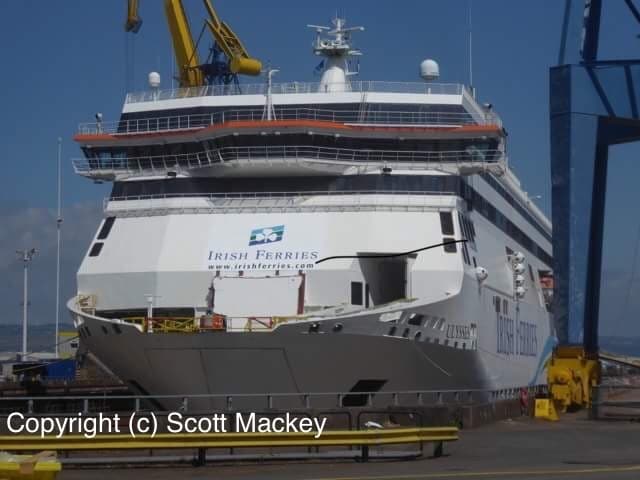
The true impact of Ulysses five week absence has yet to be seen
Flagship ULYSSES was absent from service for around five weeks, the majority of which fell outside the financial period covered by todays report. Looking at year to date figures car volumes are down 4.6%, passengers 6.2%, and RoRo freight is down 0.3%. This has been attributed to a problem with ULYSSES starboard controllable pitch propeller “which required an out of schedule drydock and the leadtime to machine specialist parts”. The impact of ULYSSES‘ absence from service can be seen by looking at total carryings during July and August. From 1 July 2018 to 25 August 2018 compared to the same period last year;
- Car carryings were 106,600 cars, a decrease of 8.5%
- Total passengers carried were 413,200 passengers, a decrease of 11.0%
- RoRo freight carryings were 37,800, a decrease of 11.7%
Cumulatively in the period from 1 January 2018 to 25 August 2018 compared to the same period last year;
- Car carryings were 277,600 cars, a decrease of 4.6%
- Total passengers carried were 1,092,900 passengers, a decrease of 6.2%
- RoRo freight carryings were 180,900 units, a decrease of 0.3%
While the group still has six months with which to make up these lower figures, they will have to do so with reduced capacity on their busiest route between Dublin and Holyhead due to fleet changes partly necessitated by the late delivery of W.B. YEATS.
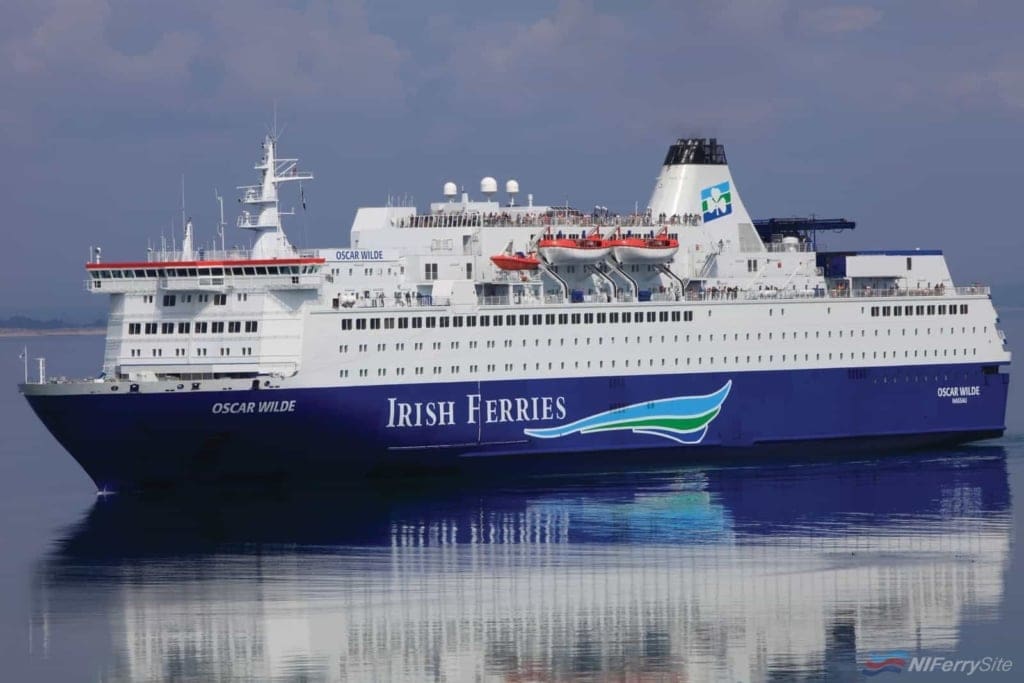
Temporary Reduction in Capacity on Flagship Service
At present, despite plans to lay her up over Autumn and Winter, OSCAR WILDE is scheduled to cover the absence of W.B. YEATS on the Dublin to Holyhead service to allow EPSILON to switch to the Dublin to Cherbourg service over Autumn and Winter as previously announced. This will also lead to a significant reduction in freight capacity on the busy Dublin to Holyhead link, with OSCAR WILDE having significantly less vehicle space than either EPSILON or W.B. YEATS. Seatruck Ferries in particular will hope to benefit from this reduction in capacity with plans to increase capacity on their competing Warrenpoint to Heysham service by 30% in the coming weeks. Stena Line have also already boosted capacity on their Belfast to Birkenhead route with the introduction of STENA FORERUNNER, but have had a drop in capacity on their Belfast to Heysham route due to the replacement of STENA PRECISION by the smaller STENA SCOTIA so the former could return to owners Seatruck. Todays result presentation would appear to contradict rumours that OSCAR WILDE may be sold during the winter resulting in the closure of the Rosslare to Cherbourg/Roscoff service, with the vessel and service listed on page 5 of todays presentation to have 7 weekly sailings during summer 2019.
